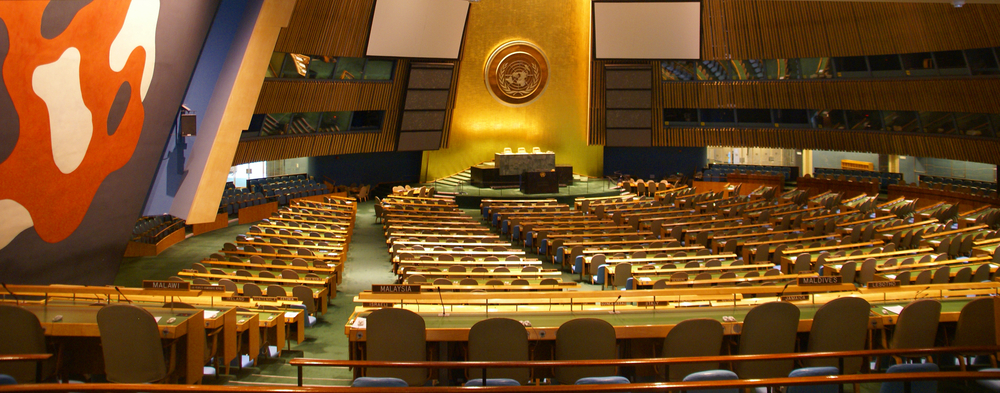MEDIA RELEASES
AIJAC condemns Australia’s UN vote on ‘Palestine’ as “profoundly disappointing”
May 11, 2024 | AIJAC

The Australia/Israel & Jewish Affairs Council (AIJAC) today condemned Australia’s vote to upgrade the status of the “State of Palestine” at the UN General Assembly yesterday as “profoundly disappointing” and “totally contrary to our long-standing bipartisan national commitment to a negotiated two-state peace between Israel and the Palestinians.”
AIJAC Executive Director Dr Colin Rubenstein described the vote as “profoundly disappointing and completely misguided as a way to advance Israeli-Palestinian peace following the current Gaza conflict launched by Hamas’ unprovoked mass-pogrom of October 7 last year.
“Apart from the fact that ‘Palestine’ clearly does not currently meet the criteria for statehood defined by international treaty law, the preconditions for a two-state Israeli-Palestinian peace are simply not currently in place, and extending recognition to the ‘State of Palestine’ makes it much less likely these preconditions can ever be put in place.
“As the Government correctly says, Hamas must have no future role in governing Gaza, not least because it is irredeemably and militantly opposed to any two-state peace. Yet there is no doubt whatsoever that many Palestinians see UN recognition of ‘Palestine’ as a major national achievement made possible by Hamas’ wave of barbaric mass violence on October 7. Such recognition thus not only makes Hamas more popular among Palestinians, but also undeniably amounts to rewarding its violent, terrorist methods. The world, with Australia’s support, is thus effectively signalling that mass murder, rape, kidnapping, and hostage-taking are acceptable and effective tools for achieving legitimacy and international support.
“In addition, extending such recognition now is also a huge disincentive for the Palestinian Authority (PA) – which has long rejected peace negotiations, is rife with corruption, and incentivises terrorism – to undertake the root and branch reforms our Government has acknowledged it must before it can take over Gaza’s governance post-war, or become the nucleus of a Palestinian state.
“Furthermore, the UN General Assembly vote to give the ‘State of Palestine’ status as a member state in almost all respects contradicts the language of the UN Charter – part of a wider pattern whereby the UN has destroyed its ability to be a force for Middle East peace through the extreme anti-Israel bias and partisanship which has dominated that body for decades. The UN is making itself disreputable and irrelevant, which cannot serve Australia’s broader national interest, even apart from the damage the UN’s extreme bias does to our declared national goal of seeking to foster a negotiated two-state peace between Israel and the Palestinians. Yet with this vote, Australia has effectively backed the UN to both discredit itself as a trustworthy custodian of international peace and security and make itself yet more of an obstacle to genuine Israeli Palestinian peace.
“Damagingly to our national credibility, we are also out of step with our key allies. This includes the US, Argentina, Papua New Guinea and Czechia, which voted against, and the UK, Canada, Germany, Italy, Sweden, Ukraine, Fiji, and the Netherlands, which abstained, all clearly recognising the very counter-productive effects of this UN resolution.”
Rubenstein also added that “at a time when the Jewish community is looking for government leadership and support in the face of an unprecedented wave of antisemitism in Australia, the Government’s vote – which can only further inflame communal tensions – is particularly concerning.”
Dr Rubenstein described the effect of the vote as “totally contrary to our long-standing bipartisan national commitment to a negotiated two-state peace between Israel and the Palestinians,” and to “our historic friendship and support for our democratic friend and ally Israel and its security,” as well as undermining Australia’s democratic values and traditions.
He concluded by calling on the Government to reconsider its current “short-sighted, confused and counter-productive” policy approach toward Israel, the Palestinians and the current war in Gaza.





